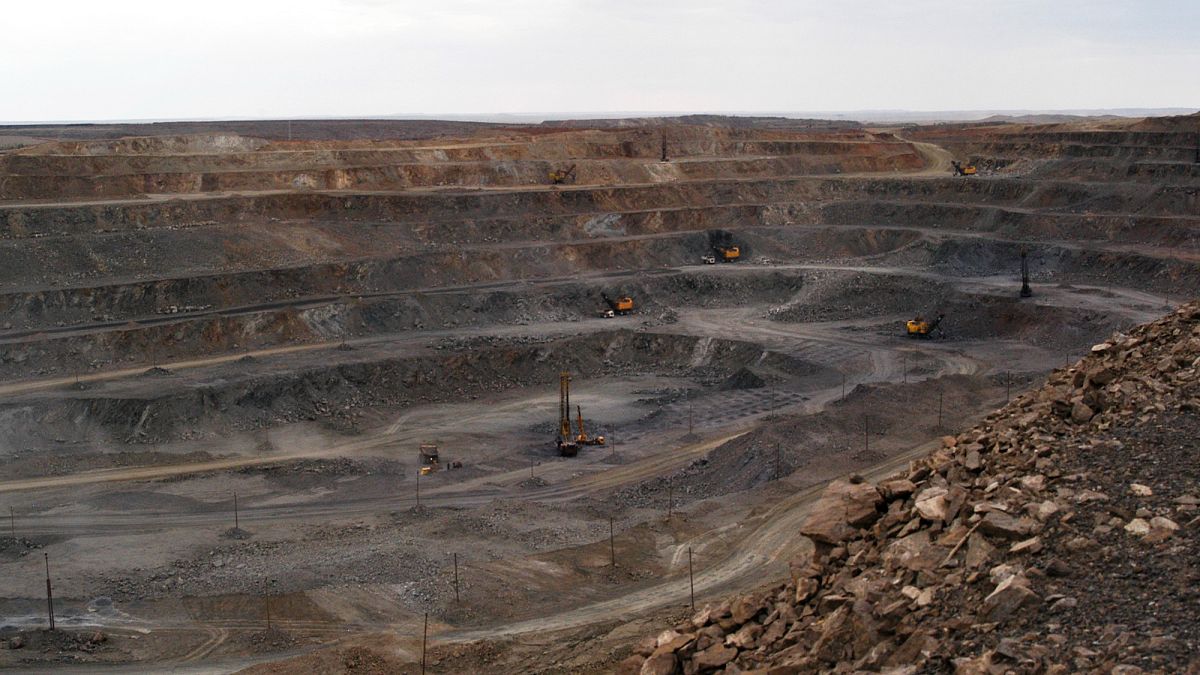China has approved a number of rare earth export licences, a move that could provide modest relief to global manufacturers struggling with supply disruptions.
But with export volumes still sharply down and no transparency on which firms benefit, Europe’s automotive industry remains vulnerable to further disruption.
At a press conference on Thursday, China’s commerce ministry confirmed it had approved “a certain number” of export licence applications for rare earths and magnets.
These minerals are used in an array of high-tech products such as smartphones and jet engines.
Rare earths such as neodymium, dysprosium and terbium are indispensable for producing lightweight, high-efficiency motors in electric and hybrid vehicles.
China’s announcement follows months of tension sparked by Beijing’s decision in April to impose new export controls on seven rare earth elements and related products — just days after Washington introduced steep tariffs on Chinese goods.
According to commerce ministry spokesperson He Yadong, China will “continue to strengthen the review and approval” of licence applications and remains “willing to enhance communication and dialogue” on export controls.
The updated tone from Beijing also arrives just weeks before a major EU-China summit set for 24 to 25 July in Beijing, commemorating 50 years of diplomatic relations.
Exports collapsed in May
Chinese customs data shows the stark impact of the restrictions.
Exports of rare earth magnets plunged 74% in May compared to a year earlier, the steepest drop in over a decade.
Shipments to the United States fell by 93%, according to a Wall Street Journal analysis.
Total export volumes for May stood at just 1.2 million kilograms, the lowest since the start of the COVID-19 pandemic in early 2020.
Earlier April exports also dropped by 45% year-on-year.
JL Mag Rare-Earth, a major Chinese magnet supplier to Tesla, Bosch and General Motor, said last week that it had begun receiving licences for shipments to the US, Europe and Southeast Asia.
Since April, hundreds of export licence applications have been submitted to Chinese authorities, but only about one-quarter have reportedly been approved.
Some firms have encountered requests to disclose IP-sensitive information, while others have faced outright rejections based on unclear procedural grounds.
China’s rare earth monopoly
ING economist Rico Luman indicated that with “nearly 70% of global rare earth production and more than 90% of processing taking place in China, the world remains heavily reliant” on the country.
Though rare earths are not geologically scarce — cerium, for instance, is more abundant than copper — their extraction is costly, and mineable concentrations are rare.
“It’s not a question of scarcity, but of concentration,” Luman added.
China also supplies more than 90% of the world’s demand for rare earth permanent magnets, frequently used in electric motors and wind turbines. Without access to these materials, the European automotive supply chain risks paralysis.
Europe’s automotive sector remains exposed
The automotive sector relies heavily on rare earth magnets for electric motors, power steering, sensors and other components used in both combustion and electric vehicles.
“China’s export restrictions are already shutting down production in Europe’s supplier sector,” Benjamin Krieger, Secretary General of CLEPA, warned earlier this spring.
His call for “transparent, proportionate” licensing remains relevant, even as some licences begin to clear.
The European Chamber of Commerce in China confirmed that while some progress has been made, challenges persist.
“The situation is improving, although the percentage of cleared licences does vary. Additionally, even once the licence is given, delays can still be seen in customs clearances,” said Adam Dunnett, the Chamber’s secretary general.
Beijing’s latest move to ease export restrictions on key components for the automotive industry offers only limited relief to a sector under strain.
The European automotive industry, already grappling with competition from lower-cost Chinese electric vehicles, remains vulnerable to material shortages, delays and discretionary actions from Beijing — thereby reinforcing China’s leverage in global trade negotiations.

